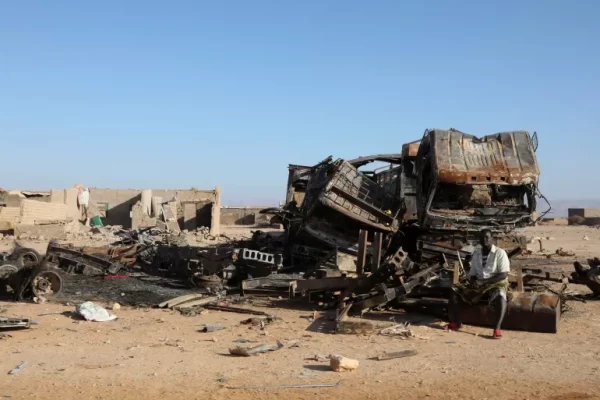
Why Trump’s U.S. Airstrikes in Somalia Have Surged Despite America First Pledges
MOGADISHU, Somalia – Despite campaign promises to end America’s “forever wars,” President Donald Trump has sharply escalated U.S. military activity in Somalia since beginning his second term, with airstrikes more than doubling in 2025 compared to the previous year. According to data from the U.S. Africa Command (AFRICOM), at least 43 airstrikes have been carried out in Somalia this year—targeting both ISIL (ISIS) affiliates in Puntland and al-Shabab militants across southern regions. The figure represents a significant increase from 2024 and reflects a renewed military focus on the Horn of Africa. Trump’s first overseas military action this year came on February 1, just 10 days into office, when he announced airstrikes against what he described as “ISIS killers hiding in caves.” Since then, U.S. involvement in global conflict zones has expanded dramatically—from support for Israel in Gaza and Lebanon, to strikes in Yemen and attacks on Iran’s nuclear facilities. Analysts say the Somalia escalation is partly driven by intelligence assessments that IS-Somalia is becoming a growing threat, functioning as a regional financial and operational hub for global ISIL-linked networks. Concurrently, al-Shabab, an al-Qaeda affiliate, has made worrying territorial and strategic gains in recent months, prompting fears of a resurgence. While AFRICOM insists that these operations are conducted in partnership with Somalia’s federal government, human rights groups and security analysts warn that continued reliance on airstrikes risks inflaming anti-American sentiment and undermining long-term stability efforts in the fragile country. Critics argue that Trump’s sharp increase in drone strikes contrasts with his “America First” stance and raises questions about the sustainability of using force over diplomacy and development. “Airstrikes may disrupt militants temporarily, but they don’t build trust, reform institutions, or foster peace,” says Hawa Ahmed, a conflict analyst based in Nairobi. “Somalia needs long-term investment in governance, security reform, and economic development—not just bombs from above.” As the strikes continue and civilian casualties remain a concern, observers warn that the U.S. risks repeating the cycles of intervention that have defined its troubled legacy in Somalia for decades.Tools

